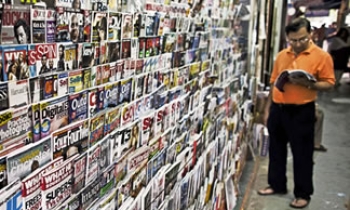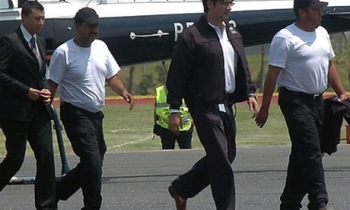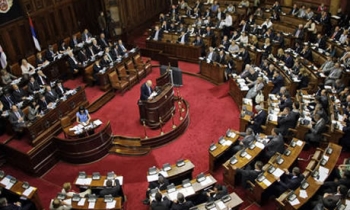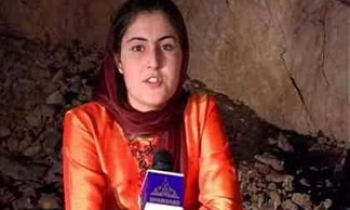LONDON, Aug. 6 — When Metro International, a publisher of free newspapers, moved into France in 2002, established competitors cried foul, and some of their workers took to the streets. Four years later, Metro and other free papers are fixtures of the French cityscape, accounting for one in five papers read in France, and publishers of paid-for dailies are considering free editions of their own.
The about-face in France reflects a broader shift across Europe, as upstart free papers continue their rapid growth and publishers of existing papers, casting about for any way to retain readers, increasingly turn to giveaways. Last week, the News Corporation, which publishes The Sun and The Times of London, confirmed plans to start a free newspaper in Britain next month.
In France, Le Monde and Le Figaro are said to be working on free newspapers. And in Germany, where entrenched publishers have resisted the trend, Verlagsgruppe Georg von Holtzbrinck, publisher of the financial daily Handelsblatt, plans to start a free business paper as soon as Monday, according to reports in German news media.
“Almost all over Europe, you see circulation going down for paid newspapers,” said Piet Bakker, associate professor of communications at the University of Amsterdam. “At the same time, the economy is improving, helping the advertising market. Free newspapers are seen as the best way to take advantage of this.”
Free newspapers have made inroads elsewhere, but their gains have been greatest in Europe, where their tabloid formats and short articles make them handy for commuters on public transportation.
Europeans read about 19 million of the roughly 28 million free newspapers distributed daily around the world, according to the World Association of Newspapers, based in Paris. The European total has doubled over the last three years, according to the group, and so-called free sheets now account for more than half of all papers circulated in Spain and more than 30 percent of those in Portugal, Denmark and Switzerland.
While established publishers have been dabbling with free papers for some time, the latest start-ups represent a new stage in the development of the market, said Aura Iordan, business analyst at the newspaper association. The publishers had started free sheets primarily for defensive reasons, to fend off the threat from the likes of Metro. But now, she said, they view free dailies as a possible source of profit.
Metro, which has grown from a single paper in Stockholm into a sprawling publisher of 69 editions in 93 cities, turned profitable on an operating basis this year, after years of heavy investment in expansion. The company has moved into 21 countries, including the United States, where The New York Times Company has invested in a Metro paper in Boston.
With its broad presence in European urban centers, Metro can offer advertisers “pan-regional” packages, which provide the fastest sales growth, said Wilf Maunoir, head of research at Metro International, based in London. Overall sales grew 16 percent in the first half of this year, at constant exchange rates, and that kind of growth has made other publishers take notice.
News International, the British newspaper division of the News Corporation, said last week that it planned to start a free afternoon paper, Thelondonpaper, on Sept. 18, with a print run of 400,000 copies. It will be distributed in central London by 700 old-style hawkers, following a model pursued by a free London business daily, City A.M.
Thelondonpaper will go head-to-head with The Evening Standard, a paid-for afternoon paper that recently started supplementing its falling circulation with an early-afternoon free version. The Standard’s owner, Associated Newspapers, also publishes Metro, a free morning paper unrelated to the Metro International publications, which is distributed in the London Underground.
The Underground is expected to award a contract soon for an afternoon free paper to be distributed in the subway system. Deals like these help the free papers reach the young, urban audiences that advertisers find most desirable, at a low cost.
But the cost of distribution will rise as more free papers crowd into the market, Mr. Bakker said. A number of deals with European public transportation systems are set to expire soon, and when they come up for renewal, transit operators are likely to try to squeeze more money out of the papers, he said.
As free papers face increasing competition, some are experimenting with distribution methods. Dagsbrun, an Icelandic publisher, has announced plans to start dropping a free paper on doorsteps in Denmark, after creating a joint-venture delivery operation with the Danish postal service.
In the United States, Clarity Media Group, controlled by the Denver-based billionaire Philip F. Anschutz, has already begun home delivery of free papers under the Examiner name in the Baltimore, Washington and San Francisco areas.
As free papers continue to spring up, some markets are showing signs of saturation. In Spain, where four free papers compete nationally, analysts say at least one is likely to fail, as hundreds of thousands of copies — out of a total of more than four million — go unread.
To survive, free papers have to keep their editorial costs extremely low. Ms. Iordan said less than 10 percent of their spending typically went toward journalism, for example, compared with 20 percent to 40 percent for conventional newspapers.
But publishers of free papers say the editorial mix, heavily weighted toward entertainment and other light fare, with plenty of photos and graphics, appeals to young readers and to people who otherwise would not pick up a newspaper at all.
“You have to give the readers what they want,” said José A. Martínez Soler, chief executive and founder of 20 Minutos, Spain’s first big free paper, now owned by Schibsted, a Norwegian publisher that competes with Metro International in many markets.
In France, a free paper recently begun by the industrialist Vincent Bolloré, called Direct Soir, has taken an even lighter approach, focusing on entertainment and night life, for instance. A spokesman said the paper hoped to achieve a circulation of one million by 2009, although it was not expected to be profitable for six or seven years.
Separately, Mr. Bolloré is said to be in talks with Le Monde on possibly starting a morning free paper in Paris, perhaps linked to a network of free papers published in other French cities. Le Monde is reportedly vying with Le Figaro, which has also drawn up plans for a free paper in cooperation with the broadcaster M6.
While France has become fertile ground for free papers, paid-for German newspapers have managed to resist the incursion. An attempt by Schibsted to start a 20 Minuten in Cologne failed in 2001 when Axel Springer, owner of the Bild tabloid, and another German publisher, DuMont Schauberg, rushed their own free papers into print and won the ensuing war of attrition.
Now Holtzbrinck may be ready to test the market for free papers. According to German news reports, it plans to distribute 70,000 copies of a free business tabloid in financial districts, starting Monday. The company did not return calls requesting details.
Edda Fels, a spokeswoman for Axel Springer, said the company was keeping an eye on Holtzbrinck. If any publisher moves directly to undercut Bild, which sells nearly four million copies, she said, Springer will respond as it did in Cologne, bringing out a rival free paper “within days.”
“We are convinced that good journalism should be paid for,” she said.









